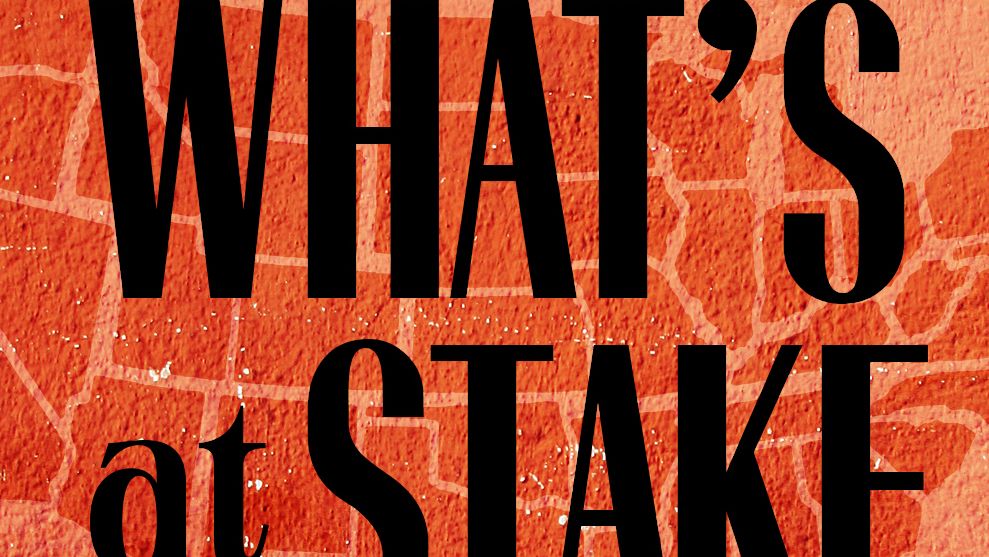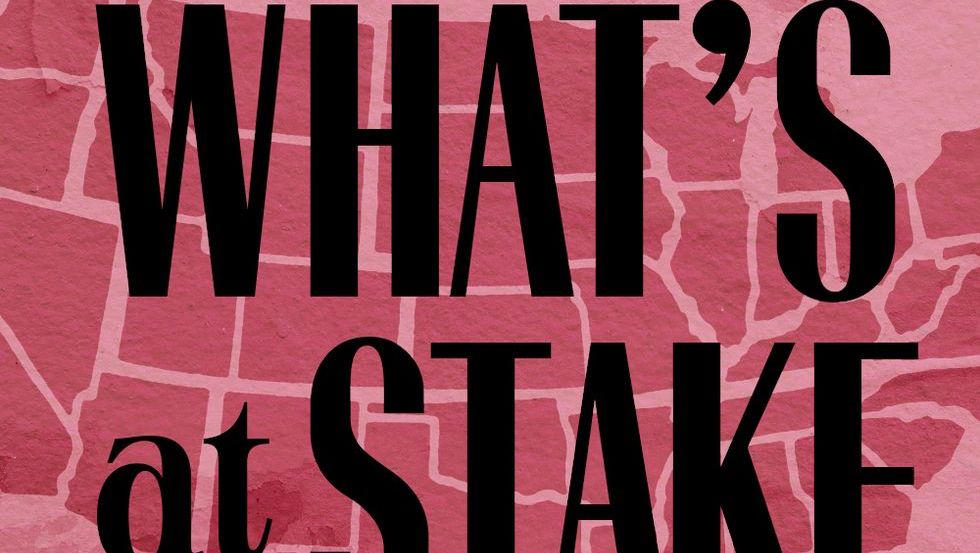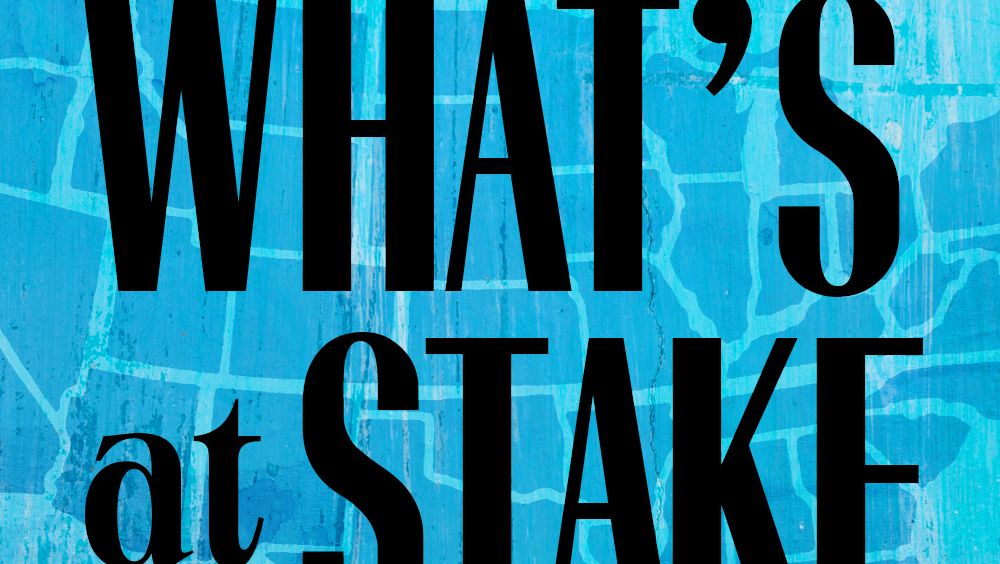What Happens If I Don’t Vote?
Five very real possibilities.


Election Day is still a couple weeks away, but the 2020 election is already happening right now. More than 27 million ballots have been cast so far, and in five states the voter turnout is already more than 20 percent of the entire 2016 turnout. But even though Americans are voting at an unprecedented pace, many still feel like their votes don't matter. Honestly, I can sympathize. I’ve covered every element of presidential campaigns in my 15+ years as a political strategist—many of which I discuss on my podcast Your Presidential Playlist—and know how easy it can be to feel discouraged.
But without strong voter turnout, the balance of power in your state could literally be decided by drawing a name out of a hat (looking at you, Virginia). Voters under 30 aren’t requesting or returning ballots as much as other key groups. If you’re feeling drained by 2020 and can’t see how your one vote matters in all this, I’m here to tell you that it does. This election will lead to policies and decisions that affect thousands—if not millions—of people.
Still not convinced? Here are five key issues that are seriously at risk if you don’t vote.
COVID-19 relief could be stalled indefinitely.
We’ve all been personally affected by the coronavirus pandemic, and it’s hard to see an end in sight. President Trump has continually ignored the advice of the nation’s top health experts and even contracted COVID himself after continuing to hit the campaign trail, often without a mask. It is still unsafe for most of the country to re-open, and mistrust around a potential vaccine continues to grow.
Despite the Supreme Court upholding the Affordable Care Act in 2011, the Trump administration continues to try to repeal the law, which would leave millions of Americans without health insurance—in the middle of a pandemic. They have a lawsuit against it working its way through the courts right now, while the Republican party is rushing the confirmation of Supreme Court nominee, Amy Coney Barrett, who would end up ruling on the case.
Joe Biden has a different path forward. Biden plans to build a national contact-tracing force and Pandemic Testing Board to ensure free and reliable testing, coordinate a global approach to develop and distribute a safe vaccine (whereas Trump has said the U.S. won’t join the international effort), and restore the pandemic response team that Trump eliminated in 2018. Biden has also proposed a public option for health insurance, building on the available health care coverage that the Affordable Care Act expanded. Biden will also urge Congress to pass more coronavirus stimulus packages to help those economically impacted by the pandemic. The latest package—which passed in the House of Representatives and was set to provide millions of Americans with additional stimulus checks, new unemployment benefits, and more small-business aid—is now stalled in the Senate.
Working women could lose a generation’s worth of progress.
It’s no secret that women are disproportionately affected by America’s lack of universal parental leave, which—coupled with the difficulty in finding affordable child care—often leads them to drop out of the workforce. COVID-19 has only worsened those inequities. This pandemic-related economic downturn is being called the “She-session,” as women account for 54 percent of overall net job loss since February. And according to LeanIn.Org and McKinsey’s 2020 Women in the Workplace report, one in four women are considering downsizing their careers or leaving the workforce due to the pandemic. That means in a single year, all the gains made in the representation of women in management since the study began could be erased.
Get exclusive access to fashion and beauty trends, hot-off-the-press celebrity news, and more.
Remote schooling and lack of child care have been major influences on women leaving the workforce. And it’s unlikely to get better soon with only 60 percent of child care programs expected to stay open longer than a year without public support. As Representative Katie Porter explained on my podcast, “The reality is no part of our economy is going to be strong and stable if we don’t have adequate child care where kids can be safe.” A Biden administration would enact many aspects of Senator Elizabeth Warren’s child care plan to ease the burden on working mothers: free preschool to all 3- and 4-year-olds, expanding the child tax credit and making it available for all parents, and increasing pay and benefits for child care workers. While Trump had proposed a plan to make child care more affordable, he’s failed to follow through on that promise. Biden’s plan would also champion women’s equality at work by reissuing Executive Order 13583 to promote diversity and inclusion in the federal workforce, something Trump has ignored. Additionally, Biden’s coronavirus recovery plan implements a national standard for school safety guidelines and earmarks emergency funding for public schools.
Reproductive rights could be in serious jeopardy.
In the wake of Justice Ruth Bader Ginsburg’s death, Trump and the Republican-led Senate are working to confirm Supreme Court nominee Amy Coney Barrett before Election Day. Barrett is known for her consertative, anti-choice stance on reproductive rights. She has refused to answer how she would rule in cases on abortion and the Affordable Care Act during her hearings, but did say Roe v. Wade should not be considered a super-precedent. If Barrett’s nomination goes through, the 6-3 conservative to liberal Supreme Court could hear a case on a woman’s right to choose and decide to overturn Roe v. Wade. The Trump administration has also prevented health care providers from telling patients about safe, legal abortion options by implementing a gag rule in 2019 dismantling Title X. This also blocked four million patients from getting affordable birth control, STD testing, cancer screenings, and other care at Planned Parenthood.
Biden has pledged to codify Roe v. Wade into law and nominate judges who would “support the right of privacy, on which the entire notion of a woman's right to choose is based.” He would repeal the Title X gag rule and ensure everyone has access to all health care options. As his runningmate, VP nominee Kamala Harris supports pro-choice plans as well. When running in the presidential primary, she proposed adding a requirement of preclearance for states that have a history of enacting laws that restrict abotion, similar to the way that the Voting Rights Act protects against restrictive voting laws.
The environment could be damaged beyond repair.
Recent news reports and experts say we have only seven years until the climate crisis irreversibly alters the planet. President Trump has not only refused to acknowledge climate scientists, he has removed climate change information from official government websites. He’s also rolled back more than 70 environmental regulations and is repealing at least 20 more. Recently Trump refused to call climate change an “existential threat.”
Eighty scientists have endorsed Biden, whose climate change plan would invest $1.7 trillion to fight climate change, including investment grants in high-risk communities and money for climate research. Biden would recommit to the Paris Agreement, the international climate accord supported by more than 190 countries, which Trump backed out of in 2017. Biden’s plan also promises that the U.S. will achieve a 100-percent clean energy economy and net-zero emissions no later than 2050. But the Biden plan does allow for the continuation of fracking, a controversial practice opposed by some environmental groups because of the risks of contaminating local groundwater and releasing dangerous chemicals, which falls short of the Green New Deal. Trump also supports fracking.
Redistricting could dramatically alter your state’s representation, funding, and policies.
Trump has been taking measures that could lead to huge reductions in the Census population count, dramatically altering the redrawing of political districts for the next 10 years. Deadlines for the 2020 U.S. Census had been extended through the end of October to ensure an accurate population count, but the Trump administration just received Supreme Court support to shut down the census early. Trump is also trying to exclude unauthorized immigrants from completing the census, which could lead to an undercount of the U.S. population. Census numbers determine federal funding for roads and assistance programs, congressional district lines, and numbers of representatives to Congress, so some areas could end up being underfunded and under-represented.
That’s why voting in down-ballot races for state and local positions is extra important this year. State legislatures will draw the new lines for districts using Census information. The make-up of power in your state after this election will have a lasting influence on who is likely to win future elections and which communities will be represented in our government. That impacts the type of legislation that does—or doesn’t—pass, like whether your state permits Covid-related rent freezes or supports adoption and surrogacy rights for LGBTQ families. Phoenix Mayor Kate Gallego summed it up well on my podcast: “I hope that as we look at who we elect at the federal level, we also think about people who have faced the challenges our communities face.”
Clearly, a lot is at stake this election. That’s not to say it’s all gloom and doom. As One Arizona’s Executive Director Montserrat Arredondo said during our conversation onYour Presidential Playlist, “Everyone has had something change in their lives. The only thing that hasn’t changed is the voting timeline.” If you’re registered to vote, you still have time to make an impact on all of these issues. If your state allows it, vote early by mail or ballot drop-off to ensure your vote is counted on time. You can also show up at your polling place on November 3 to vote in person. By showing up—not sitting out—we can still make our voices heard and see the progress we want at every level of government.
RELATED STORIES




Emily Tisch Sussman is the Founder and Host of “She Pivots,” the podcast in partnership with Marie Claire about women, their stories, and how their pivot became their success. She is a contributing editor to Maire Claire and the guest host of the Marie Claire Instagram Live series “Getting Down to Business.”